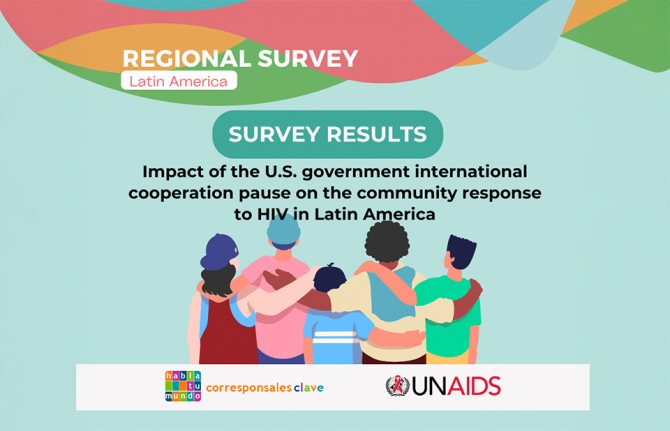
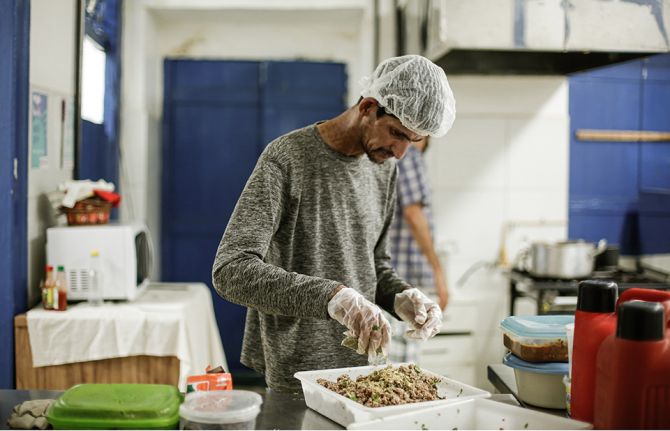
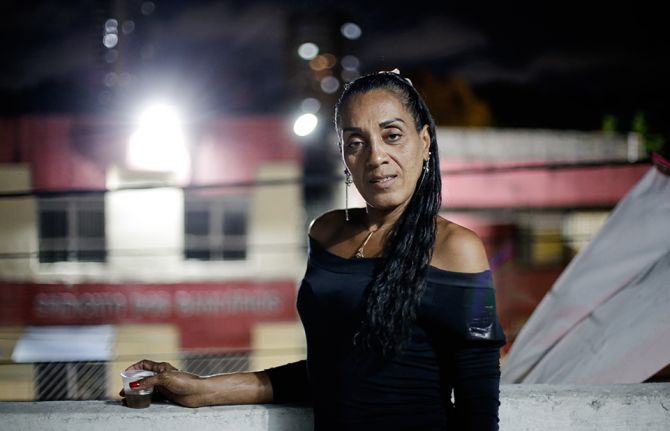

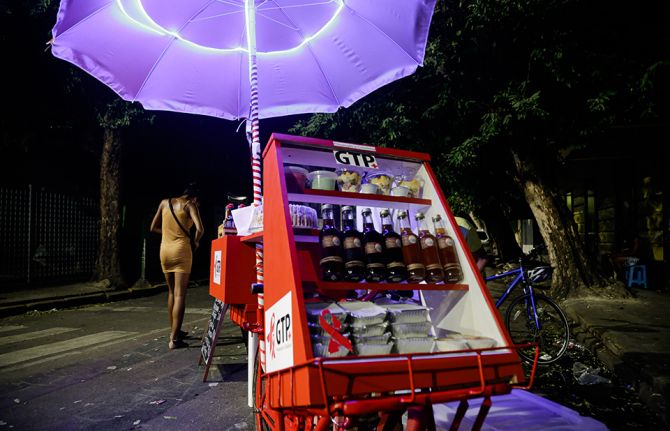
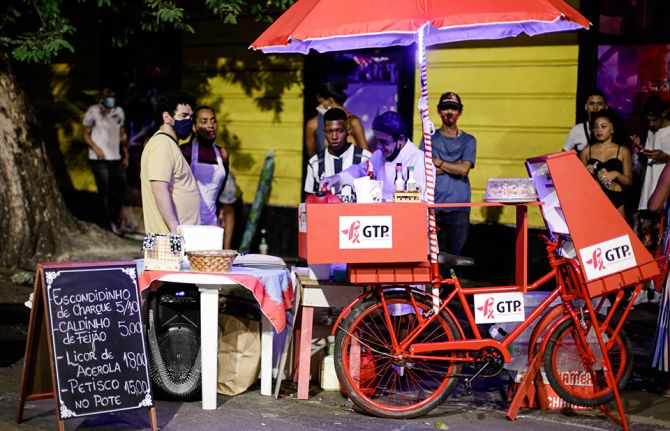
Feature Story
Encouraging income generation and social entrepreneurship by people living with HIV in Brazil
29 March 2022
29 March 2022 29 March 2022In the city of Recife, capital of the state of Pernambuco, in the Northeast Region of Brazil, a specially adapted bicycle carries products made by people living with HIV to be sold directly to consumers. It is called the Diversibike, one of the strategies for income generation implemented in the context of the Solidarity Kitchen, a project developed by the Posithive Prevention Working Group (GTP+) nongovernmental organization, one of the three Brazilian organizations that have benefited from resources from the UNAIDS Solidarity Fund, whose objective is to support entrepreneurial activities led by people living with HIV and key populations.
GTP+ was created in 2000 and was the first nongovernmental organization in the Northeast Region of Brazil to be led exclusively by people living with HIV. Among the projects developed by the organization, in addition to the Solidarity Kitchen, are the Espaço Posithivo, which welcomes people living with HIV who seek support, and Mercadores de Ilusões, which works to support sex workers to strengthen their self-esteem and claim their rights to citizenship.
The Solidarity Kitchen emerged in 2005, initially to produce meals for people living with HIV who sought support from GTP+. In 2019, a new element, the Confectionery School, was added to provide sex workers, ex-prisoners and other vulnerable people living with HIV with a way to generate income through cooking. With the resources received from the Solidarity Fund, GTP+ was able to boost initiatives to commercialize the products developed in the Solidarity Kitchen and train the participants in different aspects of entrepreneurship.
“The project has contributed to transforming the lives of people living with HIV in vulnerable situations. Through the project, they found an opportunity to generate income through entrepreneurial activities and developed their skills in gastronomy, learning recipes and techniques to improve their products,” said Wladimir Reis, the General Coordinator of GTP+.
Sérgio Pereira, one of the founders of GTP+ and the Coordinator of the Solidarity Kitchen, agreed, adding, “When the job market knows that we live with HIV, it doesn’t accept us. The Solidarity Kitchen brings to the participants the possibility of sustainability and opens doors for them to be able to enter the job market.”
Karen Silva, one of the beneficiaries of the Confectionery School of the Solidarity Kitchen, said, “I was welcomed at GTP+ with a lot of attention and care. First, I participated in the Posithive Space, then little by little I started helping in the kitchen and here I am. Participating in the Solidarity Kitchen changed my life and my self-esteem as well.” In total, 20 people have directly benefited from the Solidarity Kitchen, with the support of the Solidarity Fund.
As the objective of the project was on finding and promoting the best conditions for marketing products made in the Solidarity Kitchen, the team responsible for the project held weekly planning, organization and production meetings. They also conducted market research to identify the tastes and interests of potential customers, which was especially important in identifying Diversibike’s potential.
According to Mr Reis, an important part of the process of capacity- and knowledge-building of the group of project participants were the virtual trainings in gastronomy and administration offered through a partnership with the Federal Rural University of Pernambuco. Two scholarship-holders from the university supported the group in the meetings and by producing support materials.
One point to which Mr Reis draws attention is the fact that the project was born in a time of extreme social inequality. “For this reason, it is essential that we implement more initiatives like this, with support from the Solidarity Fund, so that other people in vulnerable situations can have the same development opportunities. With the project, we were able to observe the impact of generating financial resources for the participants, in addition to strengthening their knowledge to implement their projects and ensure their sustainability during the COVID-19 pandemic.”
“The Solidarity Fund’s support for GTP+ highlights the importance of guaranteeing income generation by organizations led by vulnerable key populations. It is a strategic action, which generates social protection for those people, allowing them access to basic resources to take care of their health and to access HIV prevention and treatment services,” said Claudia Velasquez, the UNAIDS Country Director for Brazil.


